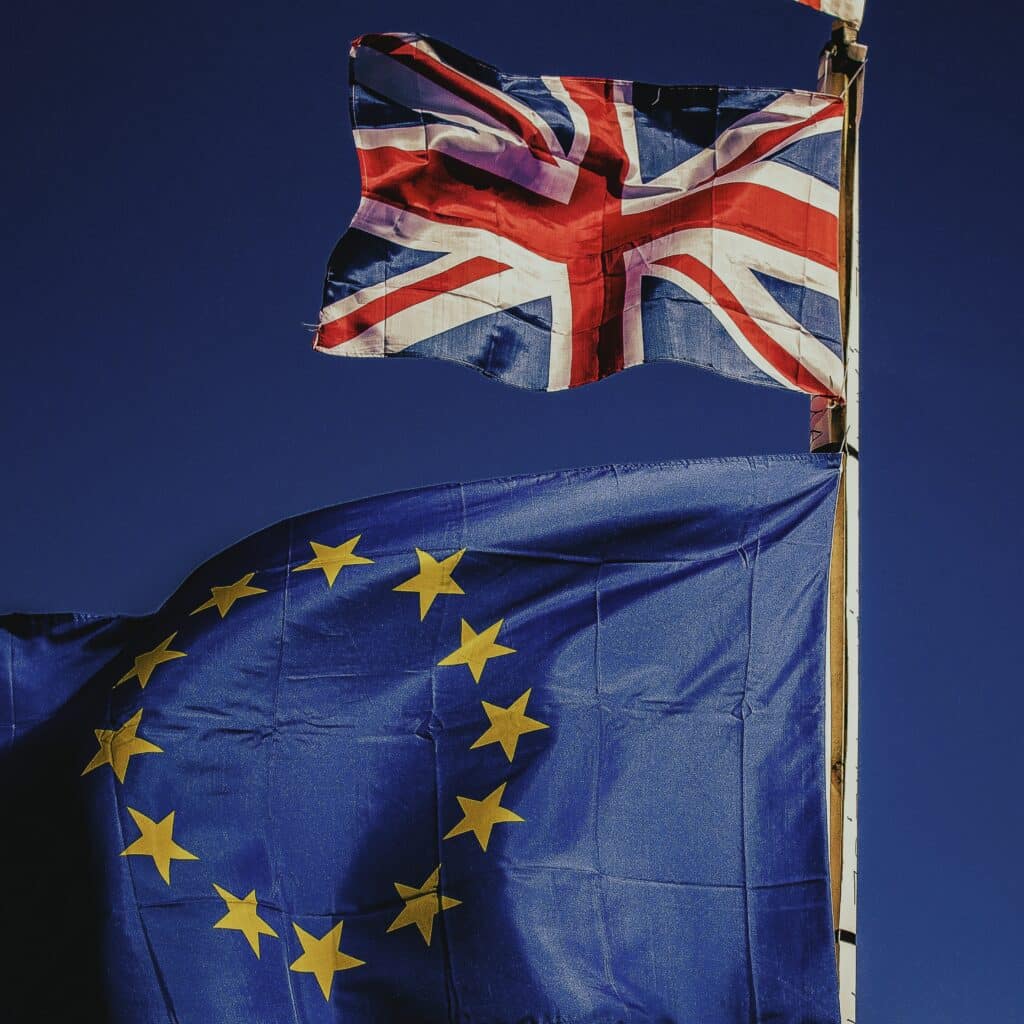What is CAP?
CAP is the EU’s Common Agricultural Policy. It was launched in 1962 with the aim of supporting farmers, given farming is a difficult industry to work in. On average, farmers earn 40% less than those in non-agricultural jobs and yet they are expected to not only supply our food but also achieve this in an environmentally and sustainable way. CAP provides financial support for EU farmers; helps farmers deal with fluctuating markets such as a temporary oversupply or temporary drop in demand; and ensures the sustainable development of rural areas.
What is the current CAP trying to achieve?
With climate change and biodiversity on everybody’s lips, the new ‘greener’, CAP will be implemented for the period 2023-2027. The Common Agricultural Policy has been given an overhaul. The EU and CAP will be working toward the Green Deal targets for 2030. These focus on climate change, management of natural resources, and biodiversity, through implementing more sustainable ways of farming.
CAP aims to readjust its funding support. It will do this by focusing more on small and medium-sized enterprises. CAP will also encourage young farmers to break into the market. It also aims to improve labourer rights and the transparency of labour conditions.
This will all be worked towards whilst constantly pushing agricultural modernisation and innovation.
How is UK government creating agricultural policy now?
Since leaving the EU and no longer eligible for CAP, the UK government has set out new policies to assist farmers. It seeks also to provide much needed funding in the agricultural sector. These policies differ across the devolved nations.
England
In England, the Environmental Land Management Scheme (ELMS), comprises three components: Sustainable Farming Incentive, Local Nature Recovery Programme, Landscape Recovery Scheme. They will be phased in, whilst the Basic Payment Scheme will be phased out between 2021-2028.
The ELMS, perhaps controversially, focuses on funding farmers for how much they deliver environmentally rather than the amount of land they own. Critics of these policies say there isn’t enough emphasis on food production or long-term goals.
Wales
The Welsh government are also encouraging their farmers to prioritise the environment. It is rewarding farmers for farming in an environmentally friendly way. For example, locking up carbon and improving soil and water quality. Wales, however, is taking a gentler approach to the changing schemes than England. It is phasing out the Basic Payment Scheme more slowly. They won’t introduce the new Sustainable Farming Scheme until 2025.
When the new scheme comes into force fully, it puts more emphasis on nature and climate emergencies, rather than food production.
Scotland
The Scottish government formed a board of advisees named the Agricultural Reform Implementation Board which consisted of farmers, crofters, and conservationists. Their new farming policies and payments are much more geared towards the farmers themselves rather than just the environment.
They will keep paying farmers based on the amount of land they own but 50% of payments will be made based on the condition of delivering environmental benefits. They aim to maintain food production and keep farmers on the land.
The Scottish government is committed to reducing agricultural emissions by 31% between 2020 and 2032, whilst also rewarding farmers for their hard work.
Northern Ireland
Whilst the Republic of Ireland is still in the EU, Northern Ireland is out. But Northern Ireland has secured a single market deal with the EU. It still receives funds from the Basic Payment Scheme. Farmers in the Republic of Ireland are supported through CAP from the EU which places them in firm competition with Northern Ireland’s farmers.
Northern Ireland’s new agricultural policy has 4 key aims: increased productivity; improved resilience; environmental sustainability; and a responsive supply chain. They have several payments and packages that farmers can apply for which focus on sustainability, beef farming, nature recovery, and carbon reduction.
Are these new UK government policies as effective as the EU’s CAP?
There are now multiple pots of money that farmers can apply to receive. Before Brexit, the government promised to match EU funding. The pots of money are varied and specific and farmers are likely to be able to apply for many different sources of funding. Examples include £1920 per hectare for producing organic fruit. Or £22 per hectare for adding organic matter to soil, £120 for maintaining sphagnum moss as a carbon sink.
Whilst policy makers claim that breaking away from the CAP scheme allows the UK to focus on important issues such as climate change and rewarding farmers for their green contribution rather than the amount of land they own, perhaps it has left farmers feeling short-changed.
Prior to Brexit, the UK received some £4.7 billion in funding from CAP. Now, the administration and resources needed to participate, for example in England’s ELMS scheme, reduce its attractiveness. This may prevent farmers from applying. Not only this, but the cost of selling produce to the EU is spiralling upwards. Farmers are now required to have export health certificates to sell to the EU. A requirement that has added £60 million to the cost of food exports into mainland Europe.
It seems that whilst the UK government continue to cut the subsidies to farmers under the pre-Brexit deals, they have failed to deliver the new schemes on time. Farmers now face the possibility of going out of business. Meanwhile, the direction of the EU and the overall UK agricultural policy headlines, are not so different.
Future Incentives
Just over £10 million was paid into the Sustainable Farming Incentive scheme in 2022, a fraction of the £2.4 billion promised by the UK government. Farmers are left wondering where the money is going. Some have seen a reduction in subsidies by 45%. The new schemes sound like they have potential in tackling the climate issues. And providing food for the nation and jobs for the farming community. However, the government, so far, are yet to really evidence this. These may be teething problems as we try to navigate a new farming era without the support from the EU. However, teething problems may cost people their livelihoods in the short-term.
The government’s new farming schemes promote Britain’s self-sufficiency when it comes to food production. It also focuses on greener farming that will improve the productivity and promote the resilience of our agriculture. There could be challenges between the devolved nations. Scotland is already providing the most comprehensive support for their farmers. It has promised more funding to the agricultural sector than England and Wales. This imbalance in puts Scottish farmers in a stronger position currently.
To combat a situation like this, the UK government implemented the Internal Markets Act in 2020 to prevent distortion of trade across the UK countries.
Similarly, the uneven uptake of the various schemes on offer will likely produce uneven production, land management, and nature restoration. There may be no stopping these outcomes but if policymakers are aware of the potential for them to arise, then at least then they may be better equipped to deal with them.
How can AgriWebb help?
Although AgriWebb is not in a position to change agricultural policy, we can help you be more productive in the way you record and manage your livestock. Feel free to get in contact with us to learn more.



 Australia
Australia
 New Zealand
New Zealand
 South Africa
South Africa
 United Kingdom
United Kingdom
 United States
United States